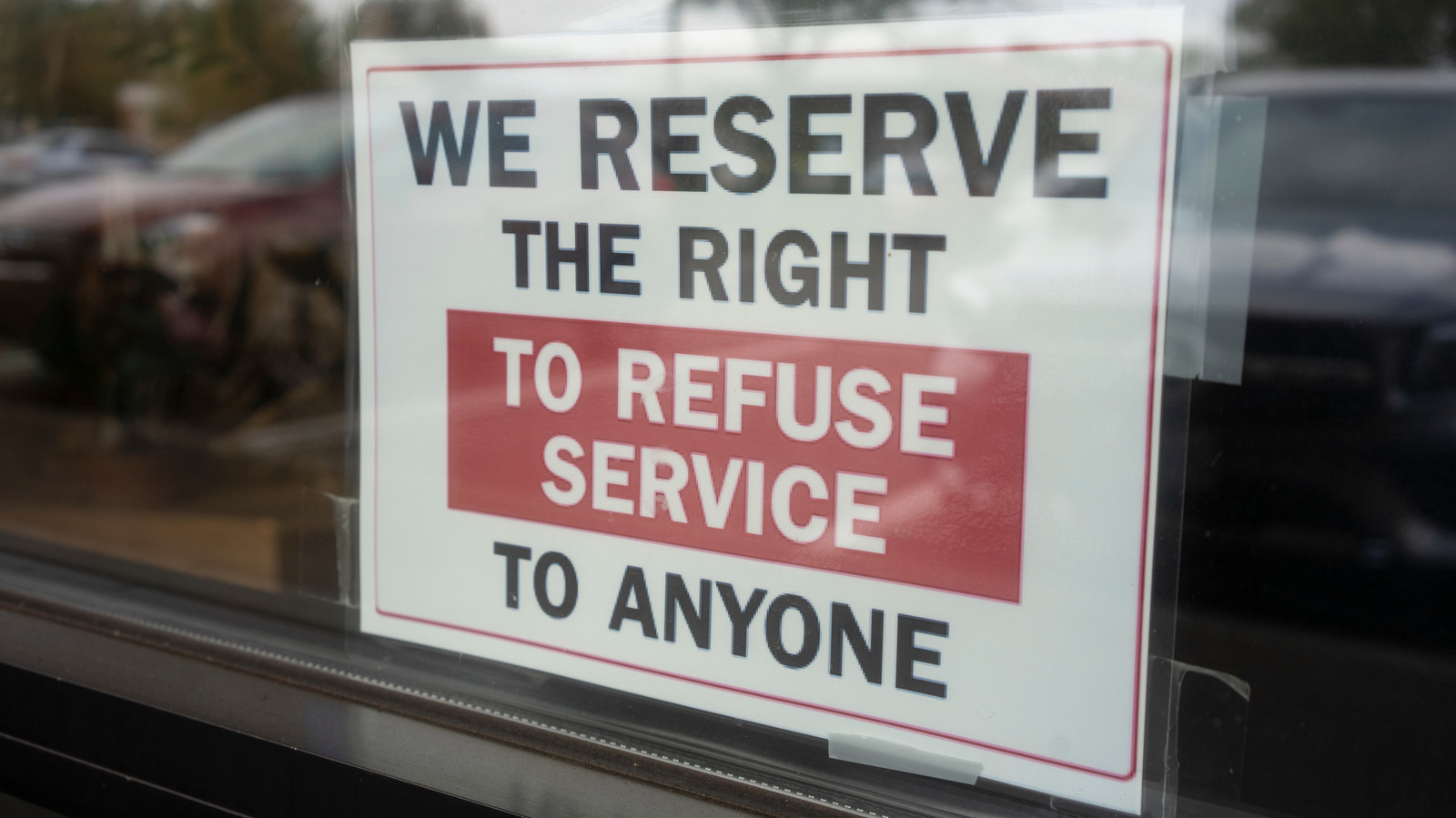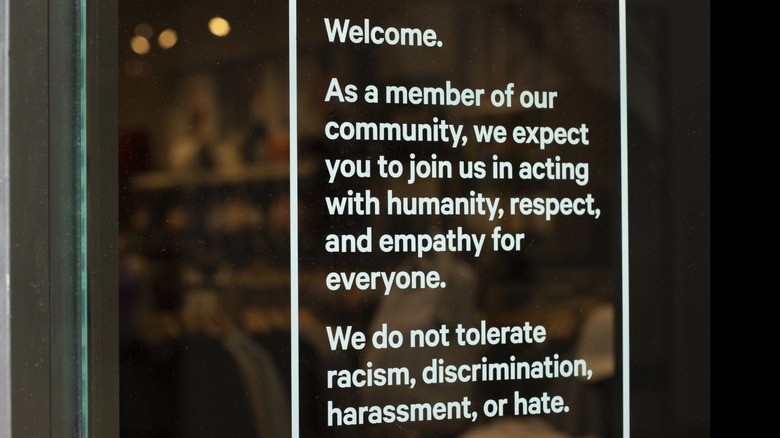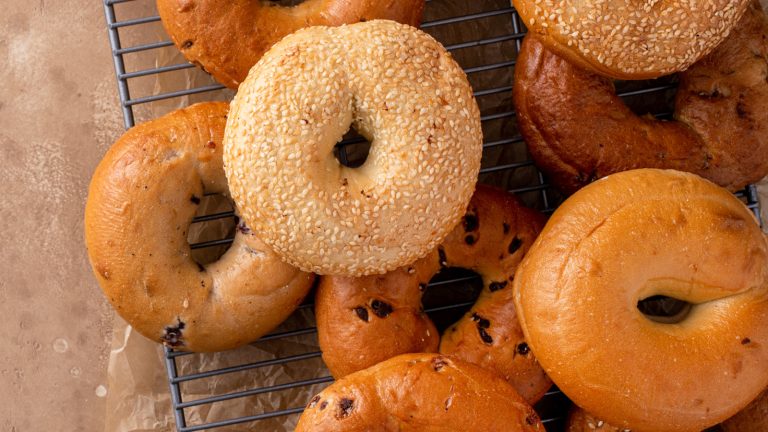When the United States passed the Civil Rights Act in 1964 and then the Americans with Disabilities Act in 1990, it seemed like the days of restaurants being able to refuse service to anyone were far behind us. But a 2018 incident when Sarah Huckabee Sanders was asked to leave a Virginia restaurant because of her affiliation with President Donald Trump and another 2025 case when a woman in Baton Rouge was told to leave for violating its dress code are reminders that restaurants actually do have the right to refuse service to customers –- under specific legal limitations.
As The Restaurant Lawyer Andreas Koutsoudakis, chair of the hospitality and restaurant law group at DHC Legal, shares exclusively with Chowhound, “While businesses have the right to refuse service for reasons like disruptive behavior or violating dress codes (as long as the dress code isn’t discriminatory), they cannot do so based on characteristics protected under anti-discrimination laws.” In the state of New York, those characteristics include race, religion, or gender. Restaurants are also not permitted to refuse service on the basis of national origin or citizenship status, sexual orientation, disability, pregnancy, and veteran status.
Beyond those limitations, any remaining rules on the rights of restaurants vary state by state. “Some states may have broader or more specific anti-discrimination laws than others,” Koutsoudakis explains, “impacting the extent to which businesses can refuse service. For example, a state might include sexual orientation or gender identity as protected characteristics, while others may not.” Differing state laws can lead to some confusion. Just think about state laws when it comes to alcohol: it’s why you can’t buy alcohol at every Trader Joe’s and why some grocery stores sell alcohol and others don’t.
Restaurants can refuse service for walking in barefoot and other behaviors
According to attorney Andreas Koutsoudakis, restaurants can refuse service if customers are intoxicated or under the influence of drugs, are disruptive or causing a disturbance, violating a reasonable dress code (such as no shirt or shoes), violating health and safety regulations, or arrive after closing time. One of the times McDonald’s found itself facing a legal issue involved that last instance: a blind man arrived after the lobby of the restaurant had closed and there was no walk-up window from which he could order. McDonald’s won that suit. As that case showed, there are certain nuances in the law that both restaurant owners and their patrons need to consider. For example, Koutsoudakis notes, “If a service animal is disruptive, the restaurant may ask for it to be removed, but they cannot simply refuse service to the person with the disability.”
Wait staff should keep in mind their responsibility in refusing service. “Wait staff are extensions of the restaurant,” Koutsoudakis says, “so the same rules apply to them –- both as to who/when they can refuse service and who/when they cannot.” It should be noted that waiters have been fired for refusing service to someone if it violated restaurant policy.
If you or someone you know believes they were unfairly denied service despite protections, Koutsoudakis suggests filing a complaint, if you live in New York State, with the New York State Division of Human Rights or the New York City Commission on Human Rights. Most other states have their own civil rights divisions. You can also contact the Civil Rights Division of the U.S. Department of Justice.






